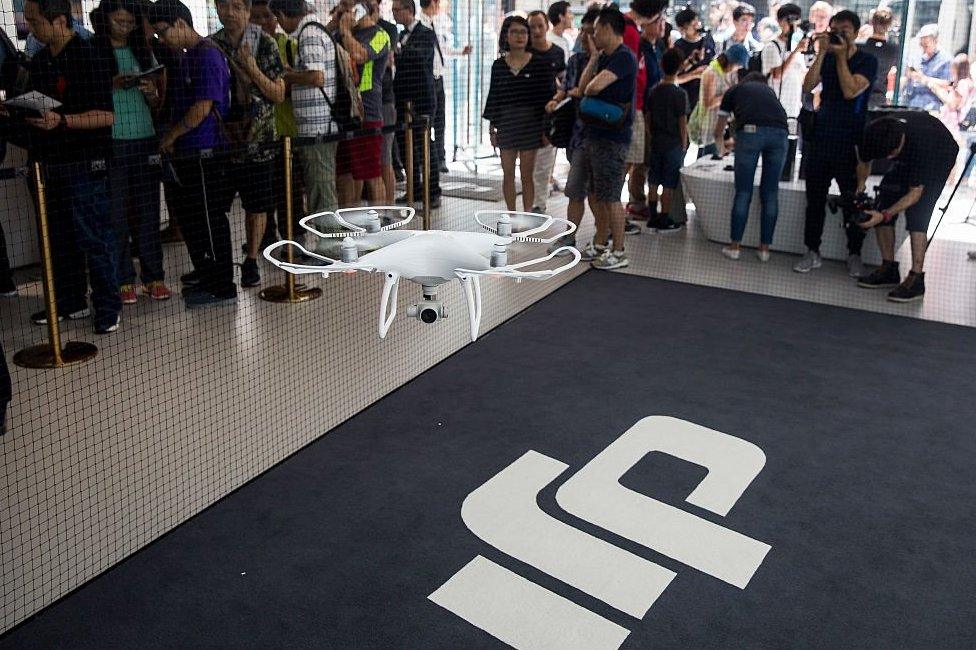DJI pledges painful action to tackle corruption
- Published

DJI was founded 13 years ago and has become one of China's best known tech brands
DJI, the world's bestselling drone-maker, has published an open letter promising to take "painful" steps to tackle corruption within its company.
The Chinese firm had previously revealed that some employees had inflated the cost of some of the components and materials it used, for personal gain.
DJI blamed in part.
But it added that it could not ignore cases of "outright theft".
"While mature companies have established the training, controls and management protocols to limit these issues, DJI has in the past emphasised corporate growth over new internal processes," the statement added.
"DJI will now take a leading role in developing clear policies, procedures and expectations to address corner-cutting and employee theft. We call on more companies to take similar steps."
Corruption crackdown
DJI accounts for 74% of the drone aircraft market, according to a .
The Shenzhen-based firm also makes camera stabilisers - known as gimbals - among other products, and is recognised as being one of China's leading tech innovators.
As a private company it does not declare its earnings, but the Nikkei Asian Review estimated that its net income last year was 6bn yuan ($893m; ┬Ż682m).
So, when the firm declared earlier this month that fraud by 45 suspected members of staff had cost it up to 1bn yuan, the sum was seen to be significant if not calamitous for the business.
At the time, it said it had dismissed 29 of the workers and reported 16 to the police.
The company's total workforce is about 14,000 employees.
Several high-profile Chinese tech firms have recently been involved in corruption-related crackdowns.
In December, the Apple-backed it had dismissed 83 people over allegations of fraud, the receipt of bribes and other suspected illegal behaviour.
The same month, Bytedance - the firm behind the short-form video app TikTok - in 2018 for allegedly accepting bribes, including luxury cars.
And had been arrested on 3 December as part of an investigation into the "alleged acceptance of improper payments".
- Published20 November 2017
- Published22 August 2017